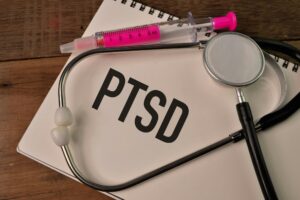Unpacking the vast differences between Complex PTSD vs PTSD
Complex PTSD vs PTSD are often categorized as chronic disorders, however they are two distinct experiences people face daily. Post-Traumatic Stress Disorder and Complex Post-Traumatic Stress Disorder are related but distinct psychological conditions that can develop after experiencing traumatic events. The variation between these complex issues are the occurrence and frequency of the trauma is present in one’s life. Here are the key differences between them:


- Nature of Trauma:
- PTSD: Typically arises from experiencing a single traumatic event or a series of closely related events (e.g., combat, assault, accident). These one time events are impactful enough to cause changes in the individual.
- Complex PTSD: Develops from prolonged, repeated trauma, often beginning in childhood, and usually involves interpersonal or relational trauma (e.g., prolonged physical/domestic violence or emotional abuse, neglect, captivity). The frequency of these events can occur several times-repetitive and chronic over several months and years.
- Symptoms:
- PTSD: Symptoms include intrusive thoughts or memories of the traumatic event, flashbacks, nightmares, hypervigilance, and avoidance of reminders of the trauma.
- Complex PTSD: In addition to PTSD symptoms, individuals with Complex PTSD may experience difficulties with emotional regulation, interpersonal relationships, self-perception (often feeling worthless or defective), and sustained changes in beliefs about oneself and the world.
- Duration and Severity:
- PTSD: Symptoms of PTSD may be severe and disruptive but are often focused around triggers related to the traumatic event.
- Complex PTSD: Symptoms are typically more pervasive, enduring, and impact multiple areas of the individual’s life. The effects of complex trauma can be more deep-seated and may require longer-term therapeutic intervention.
- Individuals will tend to “relive” their trauma. Triggers are at times random and in some occasions are specifically related to smells, people, conversations as well as images.
- Fight, Fight, or freeze responses are activated in the brain. The response depends on the emotions processed in the amygdala. This structure in the brain when activated can cause the person to experience flashbacks, nightmares, as well as displaying a startle response.
- Diagnosis and Recognition:
- PTSD: Well-recognized in clinical settings and by diagnostic manuals like the DSM-5 (Diagnostic and Statistical Manual of Mental Disorders).
- Complex PTSD: Was historically less well-recognized but gained attention as a distinct condition, especially for individuals who experienced prolonged trauma. It is not yet listed as a separate diagnosis in all diagnostic manuals but is being increasingly acknowledged. It is more common for individual who have seen war such as those in the military as well as first responders to experience Complex PTSD but it can happen to those with frequent exposure.
- Treatment Considerations:
- PTSD: Treatments such as cognitive-behavioral therapy (CBT), eye movement desensitization and reprocessing (EMDR), and medications (e.g., antidepressants) are commonly used.
- Complex PTSD: Treatment often involves longer-term psychotherapy that addresses not only the traumatic memories but also the broader impact on self-identity, relationships, and emotional regulation. Therapeutic approaches may include trauma-focused CBT, dialectical behavior therapy (DBT), or schema therapy.
In summary, while PTSD and Complex PTSD share some symptoms and treatments, they differ significantly in terms of the nature of the trauma experienced, the complexity and severity of symptoms, and the appropriate therapeutic approaches needed for recovery.
For more detail support and information do not hesitate to book an appointment to speak with us. We would be delighted to support you on your healing journey.
References
- American Psychiatric Association (APA):
- The Diagnostic and Statistical Manual of Mental Disorders, Fifth Edition (DSM-5). Arlington, VA: American Psychiatric Association, 2013.
- The DSM-5 outlines the diagnostic criteria for PTSD and provides insights into its classification and symptoms.
- National Institute of Mental Health (NIMH):
- PTSD Overview: https://www.nimh.nih.gov/health/topics/post-traumatic-stress-disorder-ptsd/index.shtml
- Complex PTSD: This is often referred to in broader discussions of trauma but may not have specific entries. The NIMH website provides comprehensive information on PTSD, which is relevant for understanding its core aspects and manifestations.
- International Society for Traumatic Stress Studies (ISTSS):
- Complex PTSD Fact Sheet: https://istss.org/public-resources/complex-ptsd-fact-sheet
- The ISTSS offers resources and information specifically tailored to understanding Complex PTSD, including its symptoms, diagnostic criteria, and treatment considerations.




